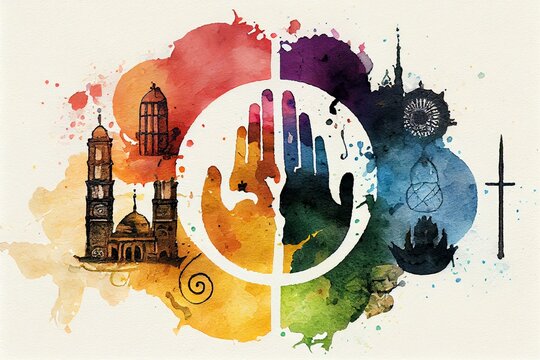Raising feminist sons
By Jennifer Zobair
As parenting noises go, the sounds accompanying the Xbox Live are not my favorite. There is the game itself, the sudden outbursts of joy and/or despair, and the often mind-numbing, game-related conversation in between. At the same time, especially for a kid you moved from Boston to Washington D.C. the summer before his junior year of high school, playing an online video game can be a way for a child to keep in touch with old friends.
For that reason, I tend to tolerate the Xbox situation better than some parents might, especially parents who are writers and whose desks are within earshot of the game console. Still, I have my moments.
“Ask your friends if they’re feminists,” I said to my son the night edits were due on the anthology I’m co-editing—an anthology that happens to be about religion and feminism. “If you all say you’re feminists, you can keep playing.”
He shot me one of those are you serious, Mom looks. I raised my eyebrows expectantly.
While my son readily calls himself a feminist in our home in front of me, his very feminist mother, I wasn’t sure he’d say it to his friends. I was a lot less sure of what his friends would say. These were mostly football-playing sixteen-year-old boys. What did they even know about feminism?
My son shrugged and posed the question. His friends all said that yes, they were feminists. My son said, “Me, too.” It was ridiculously matter of fact. They kept playing. I kept smiling.
Of course, this was partly just mother-and-son joking around. But underlying the banter was a very serious sentiment: I want my son to embrace feminism. I think other people’s sons should embrace it, too.
That may sound odd for a Muslim woman. Feminism is controversial in many segments of society, often misconstrued as a man-hating movement or as women somehow seeking more than equality, and it is particularly controversial in conservative religious communities. Among Muslims, there are generally two camps of anti-feminist thinkers: those who believe Islam prescribes rigid traditional gender roles and that feminism is a western bid’ah, or innovation, and those who claim that Islam already guarantees women’s full equality and therefore feminism is not needed.
To fully answer those who embrace the first line of thought, those who are committed to strict gender roles based on sexist stereotypes, is beyond the scope of this column. There is, of course, the example of Khadija, the Prophet’s first wife, who was older than he, a successful businesswoman, his boss, and who proposed to him. (So much for traditional gender roles.) There is also the compelling and cogent work of scholars like Amina Wadud, Asma Barlas, Kecia Ali, Aysha Hidayatulla, and Riffat Hassan. I would suggest that those wedded to sexist interpretations of Islam should at least engage the work of pro-woman scholars who have so brilliantly engaged the work of anti-woman scholars.
For those who say that Islam and the Qur’an have guaranteed women’s equal rights and therefore feminism is unnecessary, I will simply say that Islam may have guaranteed women’s rights, but Muslims have not always done so, and it’s important to understand the difference.
What does this have to do with our sons?
As the Muslim editor of Faithfully Feminist: Jewish, Christian, and Muslim Feminists on Why We Stay (forthcoming August 11th from White Cloud Press), I edited the work of fifteen thoughtful, courageous Muslim women who speak their truth about how they identify as feminists and remain within their faith tradition. These essays show that many of them either came to feminism—or became more firmly committed to it—because of the words and actions of Muslim men. The women in this collection write about enduring “benign” sexism from husbands who believe women are inherently unequal or untrustworthy, and about struggling with a culture that too often encourages women to make themselves smaller to avoid threatening their potential mates. One contributor spoke of how the arranged marriage process unduly favors men and treats women like commodities. I wrote about an imam who likened women to children in order to justify domestic violence. And one woman wrote about an abusive first marriage and the stigma in the Muslim community for divorced women who manage to escape.
Embracing a feminist ethic means teaching our daughters not to tolerate such mistreatment. It also means teaching our sons not to inflict it.
In order to do that, it is not enough to send children to Islamic school, or to encourage them to memorize the Qur’an. We cannot, as a community, stick our heads in the sand and think that religious education is a panacea for the belittling, mistreatment, or abuse of women. We are all too smart for that. Muslim women, like women from every religious background, suffer domestic violence, emotional abuse, rape, and harassment. Sometimes it is at the hands of Muslim men, and sometimes it is at the hands of Muslim men with supposedly impeccable religious training.
That is not, of course, to say that only Muslim men do these things or that only Muslim boys need to be raised with feminist ideals; gender oppression is a human problem, not solely a Muslim one. But it is to say this: The boys who grow up to mistreat women are someone’s sons. Let them not be ours.
Editor’s Note: Jennifer Zobair is a biological and adoptive mother, an attorney, and a writer. She is the author of the debut novel, Painted Hands (St.Martin’s Press, 2013) and the co-editor of Faithfully Feminist: Jewish, Christian, and Muslim Feminists on Why We Stay (forthcoming from I Speak For Myself/White Cloud Press, 2015). She lives with her husband and three children in the DC area. Connect with Jennifer on twitter @jazobair or through her website at www.jennferzobair.com. The views expressed here are her own.

















2015
1,650 views
views
0
comments